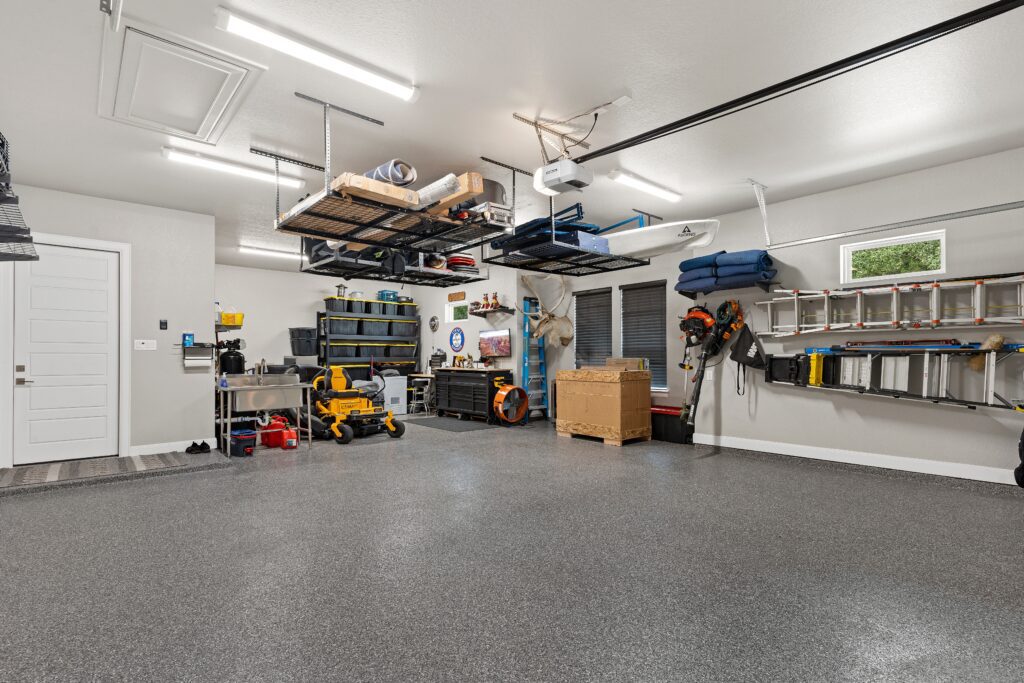8 Items You Should Avoid Storing in a Garage
Why Your Garage Isn’t the Safe Storage Spot You Think It Is
When space runs short inside your home, the garage often becomes the catchall solution. It’s tucked away, easy to access, and feels like a logical place to store items you don’t need daily. But while it’s convenient, it’s not necessarily safe.
Garages typically lack insulation, climate control, and reliable protection from moisture or pests. In the winter, temperatures can plummet. In the summer, the space can trap heat like an oven. Add in dust, humidity, and the occasional unwanted critter, and your belongings may be at risk for damage year-round.
So before you continue piling boxes into the corner, let’s take a closer look at what your garage shouldn’t be used for—and explore smarter storage strategies that help protect the things you care about.
The Top 8 Items You Should Never Store in a Garage
Many homeowners use the garage to stash items they rarely use, but certain belongings simply can’t survive the temperature swings, moisture, or dust. Below are the 8 items most at risk for damage when stored in a garage—and why they’re better off somewhere else.
1. Vinyl Records
Vinyl is highly sensitive to heat. Garage temperatures can warp the records, while dust and humidity degrade sound quality.
Why it’s risky: Warping, scratching, and moisture damage make records unplayable.
2. Artwork
Whether it’s a painting, framed photo, or sculpture, garage environments cause warping, fading, and mold.
Why it’s risky: Humidity loosens canvas, cracks frames, and fades pigment.
3. Photographs
Family photos can curl, fade, or stick together in damp or hot conditions.
Why it’s risky: High moisture and poor air quality cause lasting damage.
4. Furniture
Garage air can warp wood, rust hardware, and attract pests. Upholstery absorbs odors and mildew.
Why it’s risky: Fabric, leather, and wood all degrade in uncontrolled conditions.
5. Electronics
Old TVs, laptops, or cables degrade quickly due to condensation and extreme temperatures.
Why it’s risky: Moisture corrodes internal parts and ruins functionality.
6. Books
Books absorb humidity like a sponge. Pages curl, bindings break, and mold can take hold fast.
Why it’s risky: Dampness and high heat ruin both structure and readability.
7. Clothing
Stored clothes can attract bugs and rodents and quickly develop mildew in the garage.
Why it’s risky: Fabrics break down and mold spreads in enclosed, damp spaces.
8. Mattresses
A mattress left in a garage is vulnerable to pests, moisture, and structural deterioration.
Why it’s risky: Traps dust, mildew, and becomes unusable over time.
The Hidden Cost of Poor Storage
Storing these items in your garage might seem harmless—until you realize the long-term cost. Damaged furniture, moldy books, and warped records aren’t just disappointing—they’re expensive to replace.
Even worse, many of these items carry emotional value: family photos, meaningful art, a favorite couch. Once they’re ruined, they’re gone for good.
Protecting your possessions starts with understanding where and how to store them safely.
So, What Can You Store in a Garage?
Not everything is doomed in garage storage. Items built for the outdoors or heavy-duty use typically fare just fine. Use this simple question to guide your decisions:
“Would this item be okay sitting outside for a few days?”
If the answer is yes, then it’s probably garage-safe.
Garage-Approved Storage Items:
- Outdoor tools and lawn equipment (rakes, shovels, hoses)
- Bikes and coolers
- Camping gear
- Car supplies (cleaning products, washer fluid, oil)
Smarter Garage Storage Starts with Better Habits
Even for garage-safe items, how you store them matters just as much as what you store.
Easy Upgrades to Your Garage Organization:
- Install shelves and wall hooks to keep items off the ground and out of moisture zones.
- Use plastic bins instead of cardboard, which attracts pests and absorbs water.
- Label everything clearly box labels help so you can find what you need without digging through piles.
- Declutter seasonally to stay ahead of buildup and spot any signs of damage early.
When the Garage Just Won’t Cut It
If you’ve realized that your garage isn’t cutting it for long-term or sensitive storage, you’re not alone. Many homeowners face the same issue: limited indoor space, and a garage that can’t be trusted with valuable or delicate items.
That’s where climate-controlled self storage comes in.
Why Climate-Controlled Storage Is the Smarter Choice
Climate-controlled units provide a secure, regulated environment that shields your belongings from temperature swings, humidity, pests, and dust. They’re ideal for anything you wouldn’t leave in an attic or basement.
Benefits of Climate-Controlled Storage:
- Consistent Temperatures all year long—no freezing, no baking.
- Humidity Control to prevent warping, rust, mold, and mildew.
- Pest Prevention thanks to sealed environments and regular inspections.
- Added Security like gated access, surveillance, and on-site staff.
Whether you’re storing a beloved piece of furniture, an old record collection, or family heirlooms, this level of protection is worth the investment.
How to Choose and Organize the Right Storage Unit
When it comes to storage, choosing the right unit is just as important as how you organize it. Whether you’re clearing space at home, storing business inventory, or preparing for a move, the type and size of your storage unit can make a big difference. Think about both your current needs and any future items you may want to store. By planning ahead and being intentional with your setup, you can make the most of your space from day one.
Choosing a unit isn’t one-size-fits-all. Start by asking:
- What am I storing?
- How long will I need it?
- How often will I access it?
If you’re storing temperature-sensitive items or need long-term storage, a climate-controlled unit is essential. Be sure to choose a size that fits your needs—with room to grow.
Organization Tips for Maximum Efficiency:
- Group similar items and keep frequently used items near the front.
- Label all bins and maintain an inventory list digitally.
- Avoid stacking too high to prevent tipping or damage.
- Create a center aisle so you can move around comfortably.
Adjusting Your Storage Seasonally
Storage isn’t a one-and-done process—it changes with the seasons. Adjusting your storage setup regularly can help preserve your belongings and free up space at home.
Seasonal Swaps to Consider:
- Winter Storage: Tuck away summer gear like bikes, patio furniture, and gardening tools.
- Summer Storage: Store bulky winter coats, snow shovels, and holiday decorations.
In humid seasons, use moisture absorbers in bins or drawers to prevent mold, especially when storing clothes or soft furnishings. A seasonal refresh helps you stay organized—and keeps your home clutter-free year-round.
Storage Success Starts with the Right Space
Your garage may be convenient, but it’s not designed to protect everything you own. Items that are sensitive to heat, cold, moisture, or pests need better conditions—and that’s where a climate-controlled unit comes in.
Whether you’re storing family photo albums, electronics, or heirloom furniture, the right storage solution ensures your belongings stay safe and in good condition. It’s not just about saving space—it’s about protecting what matters most.






